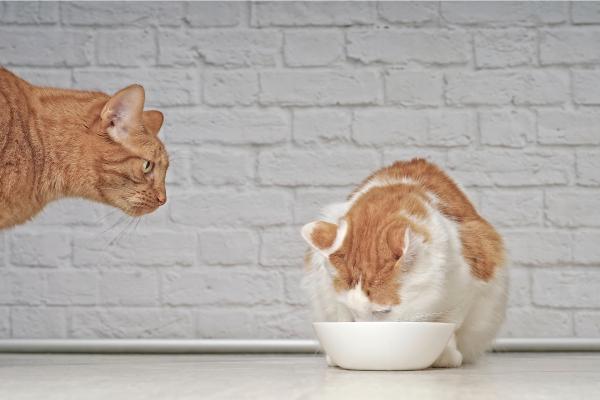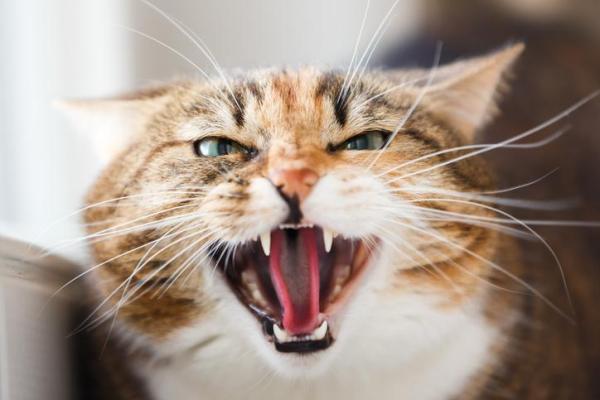Do Cats Get Jealous?



See files for Cats
Cats are often thought of as aloof and independent, but anyone who’s shared a home with one knows they can be quite sensitive to changes around them. One question that often arises among cat owners is whether cats can feel jealousy. Like humans, cats have complex emotional needs, and shifts in attention, new pets, or even changing routines can trigger responses that resemble jealousy.
In this AnimalWised article, we’ll explore if cats get jealous, why these feelings occur, and practical solutions to help your cat feel more secure and content.
Do cats really get jealous?
For a long time, jealousy was considered unique to humans because it requires complex social awareness and self-perception. However, recent studies on animals—particularly dogs—suggest they may experience jealousy-like responses. While it’s still debated, there’s growing evidence that animals have secondary emotions (those beyond basic survival emotions like fear and pleasure), which might include jealousy.
Jealousy is often viewed as an adaptive response in animals that live in social groups. It helps secure resources or social bonds by discouraging competitors. This perspective is primarily applied to social or gregarious animals, such as primates, dogs, and some bird species, where strong social bonds and hierarchies are common.
Unlike dogs, which evolved as pack animals, domestic cats evolved from a more solitary ancestor, the African wildcat. Domesticated cats, however, have adapted to human environments and can develop social bonds with humans and other animals. This domesticated sociality suggests they can form attachments, but their emotions and social behavior are generally less understood than those of more gregarious animals like dogs.
Cats can form close attachments to specific individuals, whether humans or other animals. This bond often leads to certain individuals being viewed as “valued social partners.” If another individual (a pet or a human) disrupts this bond, the cat may exhibit behaviors that look like jealousy. However, in scientific terms, calling it “jealousy” is still speculative.
While dog jealousy has been a subject of study, there’s limited research on jealousy in cats. No clinical studies definitively confirm jealousy in cats, which makes it a less precise term in feline behavioral science.
Signs of jealousy in cats
While scientific studies haven't definitively confirmed jealousy in domestic cats, we can observe behaviors that suggest similar emotional responses.
By drawing parallels to jealousy in other animals, such as dogs and horses, we can identify potential signs of feline jealousy:
- Cats may seek more frequent attention from their primary caregiver, especially when the caregiver is interacting with another person, animal, or object. In some cases, cats will position themselves between their favorite person and another pet or person if they feel “left out.” This blocking behavior could indicate possessiveness over their bond, though in animals, this is generally seen more clearly in species with strong social bonding like dogs.
- Cats may closely watch interactions between their caregiver and a perceived rival, such as another pet or a new baby. Keep in mind that, in general, cats are highly observant of changes in their social environment.
- Cats may try to interrupt or disrupt these interactions, for example, by jumping on laps, knocking things over, or vocalizing loudly.
- Cats may exhibit negative behaviors like hissing, swatting, or even aggression towards the perceived rival. This response could stem from a sense of territory or attachment to their human.
As mentioned earlier, while these behaviors may indicate jealousy-like responses, it's important to note that further research is needed to fully understand the complex emotional world of cats. Curious if your cat might be interested in a new companion? We explore the signs in another article that might help you understand your feline’s social needs.

Common causes of jealousy in cats
What we often interpret as jealousy in cats might actually be caused by other behavioral issues, such as poor socialization, fear from negative experiences, or territorial instincts.
Jealous cat behavior is more likely to stem from changes in the environment rather than a true emotional response like human jealousy. However, assuming that cats can show jealousy, here are some common situations where jealous cat symptoms might appear:
- Cat jealous of a baby: the birth of a baby often leads to a loss of attention from the "valued social partner". Some parents scold their cats when they show curiosity about the baby, which can create a negative association.
- Cat jealous of a partner: many owners notice jealous cat behavior when a new boyfriend or girlfriend enters the picture. This situation can be misinterpreted as funny, leading owners to encourage the behavior. However, this can cause cat behavior issues such as possessiveness or aggression.
- Cat jealous of another cat: cats are territorial, and introducing a new cat can be tricky, especially for adult cats. This may lead to territorial behavior such as aggression, marking, or fear.
- Cat jealous of a dog: cats that haven't been socialized with dogs can experience stress or fear when a new dog is introduced, especially if the cat doesn’t understand the dog’s body language. This can lead to jealous cat symptoms like aggression or avoidance.
Now that we know the common causes and jealous cat behavior in various situations, let’s talk about how to handle it effectively. Wondering how to help your adult cat feel more comfortable with new people or pets? Check out our advice on socializing older cats.
How to help a jealous cat
To manage jealous cat behavior, start by increasing the time you spend with your cat. Spending quality, uninterrupted time with your cat every day helps reinforce your bond and provides reassurance, particularly during times of change. This could involve regular play sessions that offer mental stimulation, as well as cuddling or quiet moments of affection. Treat dispensing toys are another great way to engage your cat and reduce boredom.
Creating a safe and secure environment is also important. To reduce territorial tension, make sure each pet has its own space. If you have multiple pets, set up separate feeding areas and provide enough food and water bowls, litter boxes, and scratching posts. It’s also helpful to create safe spaces where your cat can retreat to when they need a break from the new pet or change.
Using positive reinforcement is essential for managing jealousy. Reward your cat for calm behavior, especially when they’re adjusting to new situations. You can use treats, praise, or extra affection to reinforce good behavior. Avoid punishing your cat for jealous cat symptoms, as this can worsen the issue and create more anxiety. Always handle your cat gently and calmly to keep them relaxed.
If you’re introducing a new pet, baby, or family member into the home, do so gradually. Slowly introduce the new addition to minimize stress and allow your cat to adjust at their own pace. This will help prevent jealousy-related behavior and make the transition smoother.
Looking for ways to bond with your cat while keeping them entertained? We’ve got some fun game ideas that will do just that.

If you want to read similar articles to Do Cats Get Jealous?, we recommend you visit our Behavioral problems category.
- Abdai, J., Terencio, CB, Fraga, PP, & Miklósi, Á. (2018). Investigating jealous behavior in dogs. Scientific reports , 8(1), 8911.
- Prato-Previde, E., Nicotra, V., Poli, SF, Pelosi, A., & Valsecchi, P. (2018). Do dogs exhibit jealous behaviors when their owner attends to their companion dog? Animal cognition , 21(5), 703-713.
- Morris, P.H., Doe, C., & Godsell, E. (2008). Secondary emotions in non-primate species? Behavioral reports and subjective claims by animal owners. Cognition and emotion , 22(1), 3-20.







